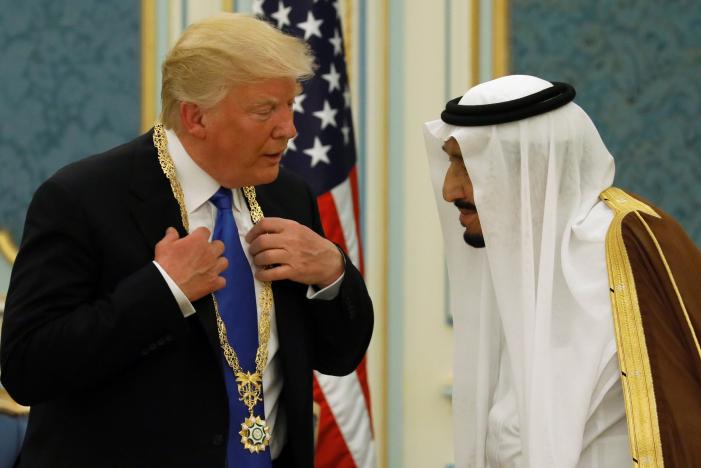How Saudi Arabia's religion textbooks promote hate against non-Muslims

Saudi Arabia's school religious studies curriculum contains 'hateful and incendiary language toward religions' and labels Jews and Christians 'unbelievers' with whom Muslims should not associate, according to Human Rights Watch (HRW).
A comprehensive review by the charity of religion books produced by the Education Ministry for the 2016-17 school year found that some content that first provoked widespread controversy for violent and intolerant teachings in the aftermath of the attacks on September 11, 2001, remains today, despite promises by Saudi officials to eliminate the intolerant language.
'As early as first grade, students in Saudi schools are being taught hatred toward all those perceived to be of a different faith or school of thought,' said Sarah Leah Whitson, Middle East director at HRW. 'The lessons in hate are reinforced with each following year.'
This research was part of a broader investigation into the use of hate speech and incitement to violence by Saudi officials and religious clerics for a forthcoming HRW report. The curriculum that was reviewed, entitled al-tawhid, or 'Monotheism,' consisted of 45 textbooks and student workbooks for the primary, middle, and secondary education levels.
The US Department of State first designated Saudi Arabia a 'country of particular concern' under the International Religious Freedom Act for severe violations in 2004, and has continued to do so every year since.
HRW pointed out that while the designation should trigger penalties – including economic sanctions, arms embargoes, and travel and visa restrictions – the US government has had a waiver on penalties in place since 2006, allowing ongoing cooperation between the two countries.
In February 2017, Saudi's education minister admitted that a 'broader curriculum overhaul' was still necessary, but did not offer a timeframe for when this overhaul should be completed.
Saudi Arabia does not allow public worship by adherents of any religion other than Islam, and HRW said: 'Its public school religious textbooks are but one aspect of an entire system of discrimination that promotes intolerance toward those perceived as "other."'
The charity said that the country 'should address the hostile rhetoric that nonconforming Sunni Muslims, Shia Muslims, and non-Muslim expatriate workers face in Saudi Arabia'.
The curriculum text states that people use shrines as a place to commit acts of illicit innovations or polytheism, including: 'praying at them, reading at them, sacrificing to them and those [interred] in them, seeking help from them, or making vows by them...'.











